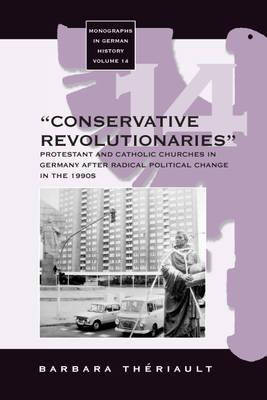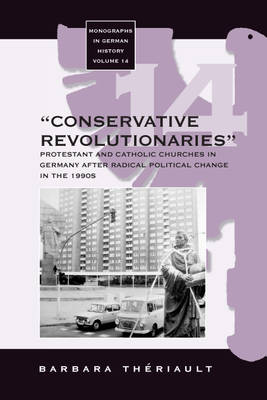
- Afhalen na 1 uur in een winkel met voorraad
- Gratis thuislevering in België vanaf € 30
- Ruim aanbod met 7 miljoen producten
- Afhalen na 1 uur in een winkel met voorraad
- Gratis thuislevering in België vanaf € 30
- Ruim aanbod met 7 miljoen producten
The 'Conservative Revolutionaries'
The Protestant and Catholic Churches in Germany After Radical Political Change in the 1990s
Barbara TheriaultOmschrijving
During the forty years of division, the Protestant and Catholic churches in Germany were the only organizations to retain strong ties and organizational structures: they embodied continuity in a country marked by discontinuity. As such, the churches were both expected to undergo smooth and rapid institutional consolidation and undertake an active role in the public realm of the new eastern German states in the 1990s. Yet critical voices were heard over the West German system of church-state relations and the public role it confers on religious organizations, and critics often expressed the idea that despite all their difficulties, something precious was lost in the collapse of the German democratic republic. Against this backdrop, the author delineates the conflicting conceptions of the Protestant and Catholic churches' public role and pays special attention to the East German model, or what is generally termed the "positive experiences of the GDR and the Wende."
Specificaties
Betrokkenen
- Auteur(s):
- Uitgeverij:
Inhoud
- Aantal bladzijden:
- 200
- Taal:
- Engels
- Reeks:
- Reeksnummer:
- nr. 14
Eigenschappen
- Productcode (EAN):
- 9781571816672
- Verschijningsdatum:
- 1/10/2004
- Uitvoering:
- Hardcover
- Formaat:
- Genaaid
- Afmetingen:
- 156 mm x 234 mm
- Gewicht:
- 458 g

Alleen bij Standaard Boekhandel
Beoordelingen
We publiceren alleen reviews die voldoen aan de voorwaarden voor reviews. Bekijk onze voorwaarden voor reviews.











